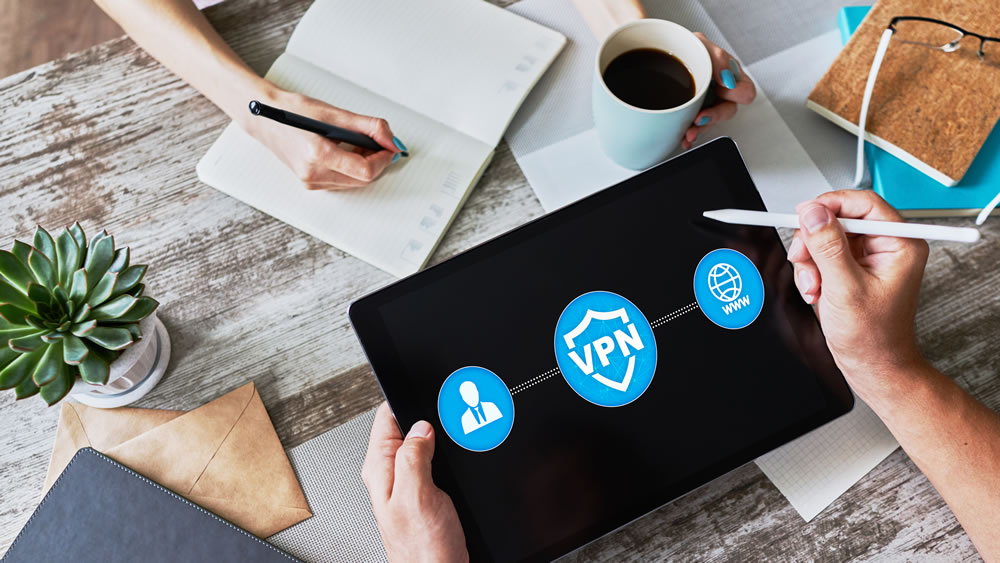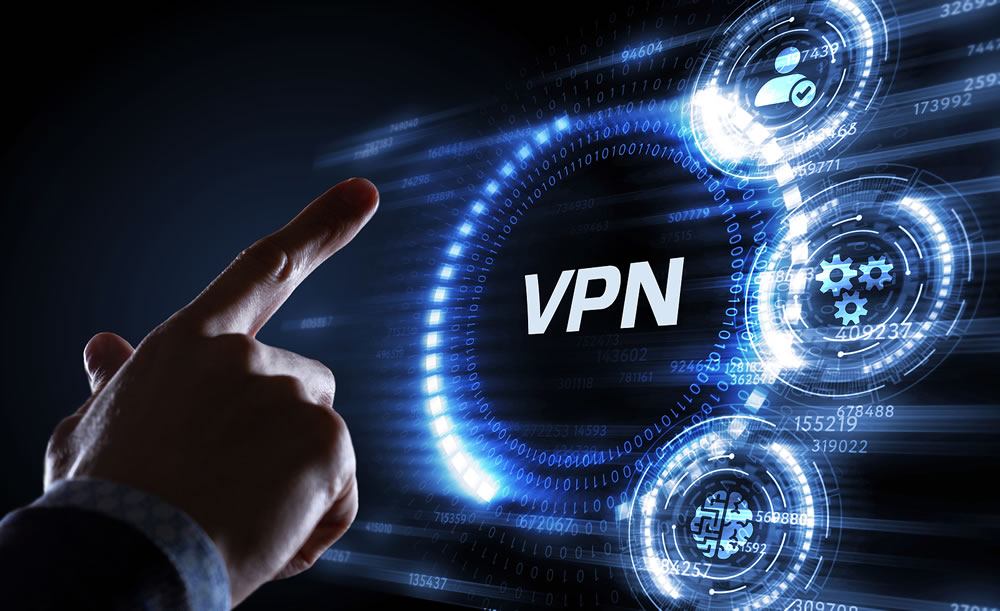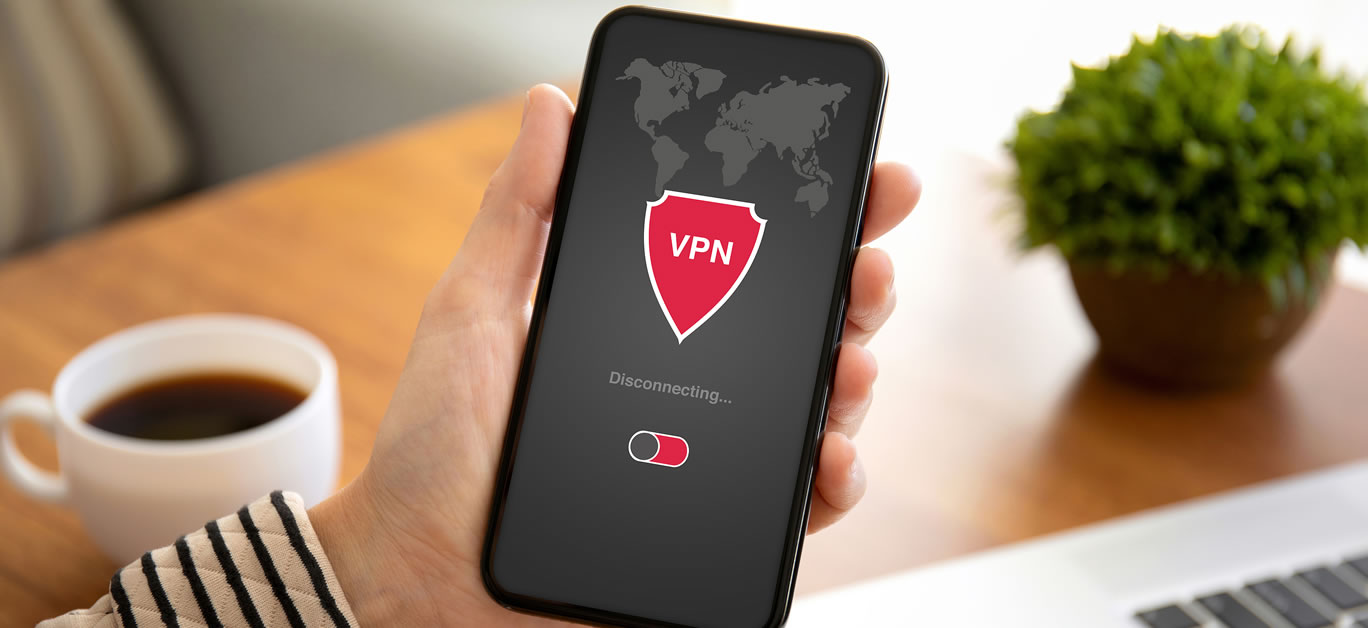In 2021, it’s fair to say that we’ve reached a point where we simply can’t live without the internet, relying on it for everything from remote working to socialising with friends – but as we increasingly spend our time out-of-office and away from the robust security programmes traditional workplaces tend to offer, we could be putting our privacy at risk.
For expats, it’s an even more pertinent concern, with many opting to relocate to sunnier climes to squeeze the most out of life in light of the recent pandemic. Without the safety net of UK firewalls and guaranteed secure connections, conducting financial affairs online can feel particularly daunting, so it’s little wonder that a growing number of expatriates are opting to use a VPN.
A virtual private network allows users to establish a protected network connection when using public networks, which is great for those who travel regularly or prefer to work and conduct their online affairs on the fly. Working by encrypting an individual’s internet traffic and disguising your online identity, they make it more difficult for would-be cyber criminals to track your activities and steal data – offering protection and peace of mind to users. But not all VPNs are created equal.
Now, there are some safe and free VPNs that are used by expats (just follow the link to find out more). However, if you’re looking to completely enhance your online experience, then you’re better off using a subscription-based VPN rather than a free one to ensure maximum security. As with most things in life, you get what you pay for – and here’s where the two differ.

Greater privacy and security
One of the primary features of a VPN is the ability to encrypt your data. Without getting too technical, encrypting your data makes it virtually impossible for outsiders to see what you do online. Whether we’re talking hackers, the government, or even your Internet provider, anyone eavesdropping on your network activity will be unable to decipher what they see – which is good news for those looking for increased privacy when logging onto the internet.
VPNs also mask and change your IP address so that it appears to be from a different region, thus throwing criminals off the scent. This has an immediate privacy benefit, since your physical location remains hidden, and cyberstalkers who try to use IP grabbers to see where you are will be unable to determine your true location.
Use your home banking account
Online banking websites typically block foreign IP addresses in order to prevent unauthorised access of user accounts and potential DDoS attacks by foreign hacking groups – but this can make it impossible to access your online bank accounts from abroad as an expat.
However, there is a way around it, and switching to a VPN server will allow you to log in without issue while abroad. A VPN with IP leak prevention and an active kill switch is your best bet, and will allow you to avoid any accidental security triggers.
Unblock content from abroad (and back home)
What better way to unwind than with a glass or two of champagne and a couple episodes of your favourite show? But as an expat, accessing your favourite streaming services can be challenging.
For those you can access, most of your favourite Netflix titles from back home are likely to be unavailable now – and in some countries, you’ll have to pay more for Netflix despite the limited content.
But by switching on your VPN, you’ll be able to gain access to Netflix’s full catalogue – as well as unblocking platforms like Hulu and BBC iPlayer that are exclusive to a single region. You’ll never have to forego your favourite series again.

Bypass firewalls at work
When working abroad, Wi-Fi restrictions in offices are typically set up to prevent employees from accessing certain non-work-related content.
But with a VPN, you can bypass any firewall, leaving you free to enjoy all of your favourite internet features and social media platforms between meetings.
Fair warning, though: don’t install a VPN on your work-provided devices, as employers will quickly realise – and the consequences probably aren’t worth it.
Why free VPNs simply won’t cut it
So, why a paid VPN over a free offering? Well, you may be able to use your home bank account and even potentially bypass firewalls with a freebie – however, the fact of the matter is that free VPNs often deliver an underwhelming experience and may mean that your personal information and privacy remain at risk.
Firstly, they won’t allow you to unblock streaming content unavailable in your region. Netflix has been blocking VPNs for years now, and free providers just don’t have the resources to get past their filters, with the same applying to all other major streaming platforms, too.
If this isn’t a concern for you, it’s not the only consideration to be made. When browsing the internet, you can expect poorer performance due to the small number of (often overpopulated) servers used, and data caps ranging from 500 MB to 10 GB a month in the best of cases.
Then, there’s the frequent bandwidth throttling that goes on, just so providers can keep speeds equal for all users. These might not be much of a deterrent if all you’re going to do is casual browsing, but most free VPNs are riddled with security issues. Aggressive data collection practices, potential malware infections and online data leaks and browser hijacking, are all concerns, so to maintain an optimum level of security, invest in the very best.






















